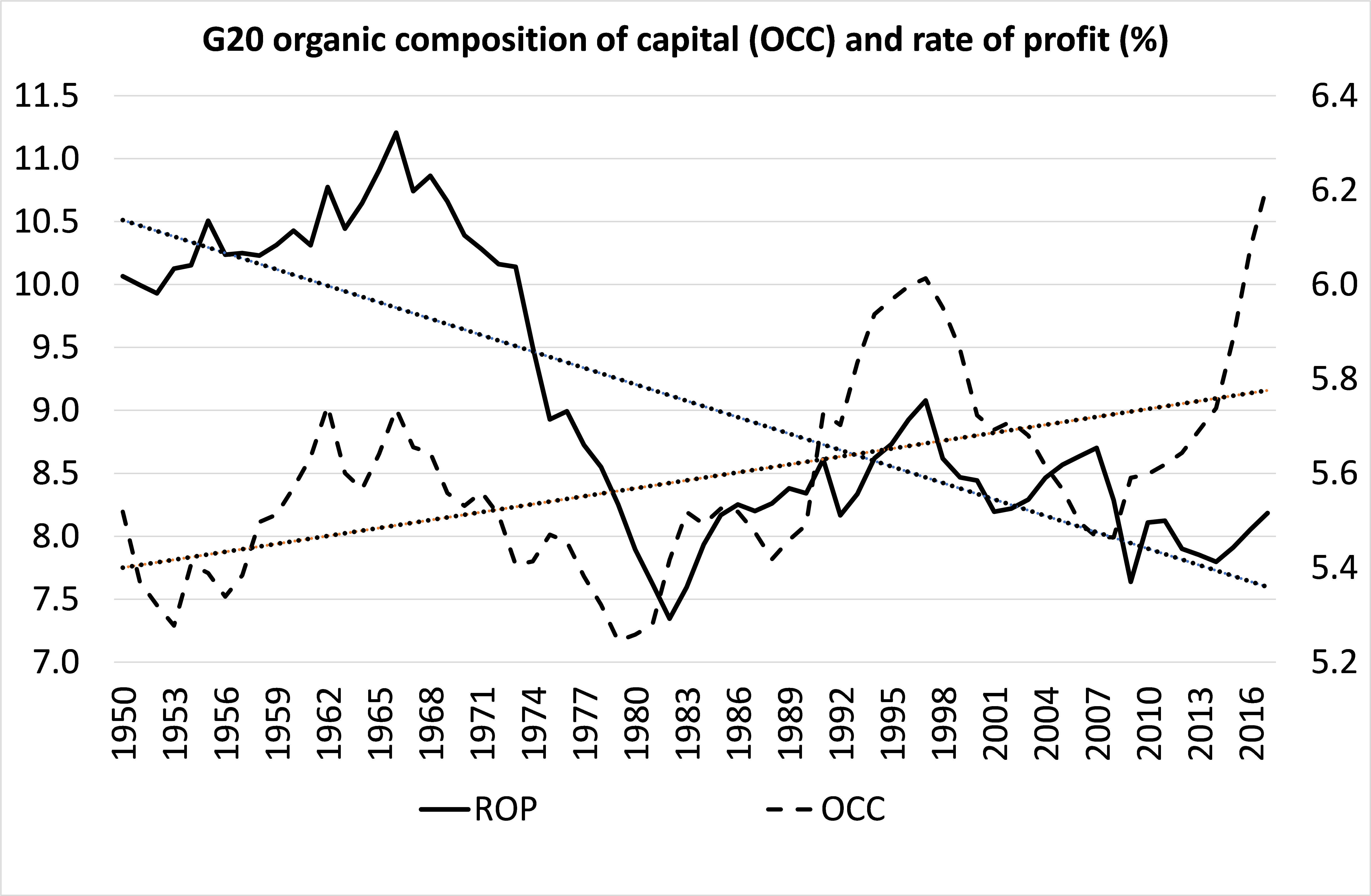|
Defenestrategy posted:I think I misspoke, what I meant by tax was, the tax man comes assess all your assets and reduces what you currently have down to 100 funbux and a buy two entrees get one free at olive garden coupon, but I get what you're all saying. You're treating labor vouchers as if it's a transferable stored value instrument, which it's not. A limited black market will certainly treat them that way but being unable to conduct any officially recognized transaction that way prevents accumulation.
|
|
|
|

|
| # ? Apr 29, 2024 15:55 |
|
The Oldest Man posted:You're treating labor vouchers as if it's a transferable stored value instrument, which it's not. A limited black market will certainly treat them that way but being unable to conduct any officially recognized transaction that way prevents accumulation. See this discussion keeps going back in the same circle. Officially recognised transaction can only exist with an official body with the responsibility to determine what is official and what isn't and to prevent accumulation or any other unauthorised usage it would need the force required to prevent or at least limit unofficial usage. That's just the germ of a ruling class its neither revolutionary nor transitional. I'm not a fan of the marxism of socialist party of great Britain (SPGB) indeed I'm probably one of their most vocal critics, but I do find many of their objections to labour vouchers hard to dispute. "Labour vouchers imply that someone must police who takes the goods produced by society. In other words there must be people who spend their time ensuring that other people do not take things without paying for them. That is normal in a profit oriented society, but a waste of human labour in socialism." https://web.archive.org/web/20130512215413/http://www.worldsocialism.org/articles/labour_vouchers.php
|
|
|
|
Baka-nin posted:See this discussion keeps going back in the same circle. Officially recognised transaction can only exist with an official body with the responsibility to determine what is official and what isn't and to prevent accumulation or any other unauthorised usage it would need the force required to prevent or at least limit unofficial usage. That's just the germ of a ruling class its neither revolutionary nor transitional. what if being a loving cop is someone's praxis
|
|
|
|
Baka-nin posted:See this discussion keeps going back in the same circle. Officially recognised transaction can only exist with an official body with the responsibility to determine what is official and what isn't and to prevent accumulation or any other unauthorised usage it would need the force required to prevent or at least limit unofficial usage. That's just the germ of a ruling class its neither revolutionary nor transitional. I don't like non-transferable vouchers but that's a utopian critique. Unltil we can produce more than enough for the population without even thinking about the practicalities of it (i.e. communism) then we have to spend time on distribution and at some point that will appear to be gatekeeping as someone will say that someone cannot take more of something because it is needed by someone else. That's not the germ of a ruling class (inherently) as you're saying, it's just the core of a system with effectively limited amounts of real things. It is the socialist state. The political economics of currency and accounting is way more important than any technical viability though. Whether it can be done off the blockchain or not doesn't matter if the function of the vouchers itself don't fulfill your political objectives. So non-circulating currency breaks the M-C-M+ cycle, true, but then you must really understand what the needs of the people using M will be and pretty much guarantee it is conveniently accessible or they will create a new M from something that they can control and accumulate. The use of the american dollar around the world when people don't trust local currency or the iconic use of cigarettes in prison illustrate this specifically but also the development of non-financial networks based on favours, family and connections which keep appearing again and again in human civilisations and act as means of securing advantages in society above others all mean you can't just say there are top marginal tax rates of 100% or you spend your cash on one use datapads like a cyberpunk novel and the job is done.
|
|
|
|
Baka-nin posted:See this discussion keeps going back in the same circle. Officially recognised transaction can only exist with an official body with the responsibility to determine what is official and what isn't and to prevent accumulation or any other unauthorised usage it would need the force required to prevent or at least limit unofficial usage. That's just the germ of a ruling class its neither revolutionary nor transitional. There are certainly holes in the labor voucher system, and it's enactment could create a ruling class that would control how excess and luxury goods would be dispensed. It is by no means a perfect system. But, if the means of production are truly owned by the workers, then they will have the material leverage against an overpowering authority. To put it simply, if you gently caress with the workers then the workers could shut down the power grid. Could the authority fight back with violence? Sure. And that conflict can and will occur at some point if a system like that is created. It's inevitable. The difference is that everyone will be housed and fed and have medical care etc. I don't know whether "authority results in corruption" necessarily means "then we should have no authority" especially when aggressive capitalist empires still run poo poo (for now). The biggest danger to a socialist state will always be the capitalist next door, and until those are gone I just can't see how any progress can be made without centralized authority defending against them. But that's my opinion.
|
|
|
|
The discussion about labor vouchers and interim stages like socialism as predicted by orthodox Marxism just makes me think that there can't really be an intermediate stage between capitalism and fully automated luxury communism, because having the intermediate stage necessarily implies the existence of a sovereign state power that would open the gates to regulatory capture by elites or the technocrats of the former regime - be they "reformed" elites from the previous system or a new ruling class that evolves organically from those appointed to oversee the transition stage. Basically, if we're already at the point where a clean break from capitalism is possible, we might be forced by material and political necessity to instantiate FALC immediately, without passing through socialism first. What Marx sees as ever-increasing crises of overproduction and the falling rate of profit implies, to me, at least, that the breaking point of capitalism will be the point at which society finds itself in a post-scarcity state by default, but is nevertheless still attempting to maintain the capitalist order by force of arms. I think there's a lot to indicate that we're very close to that point right now. Notice how financial capitalism is forced to invent ever more abstract ways to create profit out of nothing - derivatives upon derivatives. The tremendous amount of material waste that comes from an economic system that is too productive. The way that government policies of the neoliberal order are designed and intended to keep ever larger numbers of people in an impoverished and wage-stagnant state even as labor productivity has increased by more than 250% since the 1970s. The increasing threat of unemployment, underemployment, and precarity created by automation. Jobs exported to the developing world, and then subsequently being exported from there to the underdeveloped world as incomes rise all over the globe. It goes on and on. This simply implies to me that the problems of late-capitalism seem to be the problems of a nascent post-scarcity economy that simply hasn't yet realized that it is post-scarcity. So a revolution would just be a case of updating the political and social order to reflect the current technological and economic situation.
|
|
|
|
This goes back to one the first posts I made in this thread, but what would that hypothetical revolution even look like in the context of a deeply entrenched, highly technologized Military Industrial Complex? Isn't there a problem with getting closer to theoretically being able to move to FALC while still under the current neoliberal capitalist status quo, i.e. the more automation that can be achieved in a capitalist system, the less power/leverage labor has in terms of strikes? Agreed re: the perils of the transitional socialist state, but it at least feels plausible to me given how much more ubiquitous and powerful the capitalist system has become in the past 200 years
|
|
|
|
Sharks Eat Bear posted:This goes back to one the first posts I made in this thread, but what would that hypothetical revolution even look like in the context of a deeply entrenched, highly technologized Military Industrial Complex? Isn't there a problem with getting closer to theoretically being able to move to FALC while still under the current neoliberal capitalist status quo, i.e. the more automation that can be achieved in a capitalist system, the less power/leverage labor has in terms of strikes? Without a quantitative theory of sociology, it might not really be possible to answer some of these questions. It could be that there are certain failure-states that leftist revolutions can find themselves in thanks to the context in which they find themselves. For example, it might turn out (once the necessary mathematical apparatus have been developed) that the existence of competing capitalist states versus a smaller group of embattled communist ones forces the communist societies to adopt a kind of permanent war-socialism just in order to continue existing, which becomes a failure-state under which the revolution cannot continue. The preconditions necessary for a successful communist revolution might be a simultaneous uprising occurring in 50%> of all nation-states. quote:the more automation that can be achieved in a capitalist system, the less power/leverage labor has in terms of strikes? This could certainly be the case. On the other hand, I've read a good point against this in Inventing the Future, where Srnicek and Williams argue that the fewer people needed through automation, the fewer workers needed to drive a successful strike. To wit: if you have a factory with 100 technicians supervising 10,000 robots, then it only takes 100 people to strike to bring the entire production chain to a halt.
|
|
|
|
Baka-nin posted:See this discussion keeps going back in the same circle. Officially recognised transaction can only exist with an official body with the responsibility to determine what is official and what isn't and to prevent accumulation or any other unauthorised usage it would need the force required to prevent or at least limit unofficial usage. That's just the germ of a ruling class its neither revolutionary nor transitional. The fact that labor vouchers (and really a lot of state communism) contain the seeds of a ruling class is not relevant to my point that using labor vouchers to do a capitalism directly is a preventable outcome.
|
|
|
|
DrSunshine posted:Without a quantitative theory of sociology, it might not really be possible to answer some of these questions. It could be that there are certain failure-states that leftist revolutions can find themselves in thanks to the context in which they find themselves. For example, it might turn out (once the necessary mathematical apparatus have been developed) that the existence of competing capitalist states versus a smaller group of embattled communist ones forces the communist societies to adopt a kind of permanent war-socialism just in order to continue existing, which becomes a failure-state under which the revolution cannot continue. The preconditions necessary for a successful communist revolution might be a simultaneous uprising occurring in 50%> of all nation-states. Interesting way of framing it, and much more nuanced than what I was thinking. Thanks! Any recommendations for more reading along these lines? I'm skeptical that such a quantitative model of sociology is achievable, so I guess in the meantime it's speculation and rationalization  quote:This could certainly be the case. On the other hand, I've read a good point against this in Inventing the Future, where Srnicek and Williams argue that the fewer people needed through automation, the fewer workers needed to drive a successful strike. To wit: if you have a factory with 100 technicians supervising 10,000 robots, then it only takes 100 people to strike to bring the entire production chain to a halt. That's a good point. I do wonder whether in such a hypothetical, would these 100 techs fall into the working class, or the PMC? You might have fewer people that need to achieve class consciousness in order to strike, but you might also be eroding the basis for solidarity with the working class. Again, just speculation, and I appreciate you sharing the references and more nuanced thinking!
|
|
|
|
Sharks Eat Bear posted:Interesting way of framing it, and much more nuanced than what I was thinking. Thanks! Any recommendations for more reading along these lines? I'm skeptical that such a quantitative model of sociology is achievable, so I guess in the meantime it's speculation and rationalization I'm just going off speculation myself, I'm not a sociologist, but I was basically making an offhand allusion to Isaac Asimov's Foundation series. Without a science of sociology that is at least as advanced as is depicted in the novels, it's not really possible to make such predictions empirically. However! That's not to say that there isn't promising work being done with simple models. Human and nature dynamics (HANDY): Modeling inequality and use of resources in the collapse or sustainability of societies is a great place to start - and it's published as open access too! quote:That's a good point. I do wonder whether in such a hypothetical, would these 100 techs fall into the working class, or the PMC? You might have fewer people that need to achieve class consciousness in order to strike, but you might also be eroding the basis for solidarity with the working class. Again, just speculation, and I appreciate you sharing the references and more nuanced thinking! I think that would depend largely on how well ideas of class consciousness have been seeded throughout society. They might definitely consider themselves more akin to PMC and aligned with the capitalists. Society hasn't quite yet reached the stage at which 1% of the population control the means of production in service of the 0.00000001% who own the means of production, but we're fast approaching that step. I think the work of leftists right now is to increase class consciousness, especially among PMC, engineers, technical and knowledge workers, so that when that happens, they will be more keen to align with the interests of the working class rather than the bourgeoisie. If they're not, then we're kind of screwed, as they, at that point, may be able to usher in a kind of singularity, akin to what happens when you complete the first stage of Paperclip Maximizer.  EDIT: To borrow some terms from the AI Safety/existential risk community, late-stage capitalism seems to be heading towards a kind of instrumental convergence with respect to the accumulation of profit and power to ever-smaller groups of bourgeoisie. The big goal of leftists - or those engaged in leftist theory at least - should be to ensure values alignment amongst a broad spectrum of the working classes. A post-revolution goal should be to design societal institutions such that the structure of said institutions ensure values alignment in accordance with leftist values in perpetuity. DrSunshine fucked around with this message at 00:16 on Jan 23, 2021 |
|
|
|
If you believe that there is only one worker per society and everybody else is part of the lumpenproletariat or the PMC then those 100 techs are part of the PMC. If you do believe that workers are defined by their relationship to the means of production then those techs are workers.
|
|
|
|
While I think FALC is useful for reclaiming science fiction and ideals of the far future from liberal just-worldism and reactionary despair, I don't think it's useful for foreseeing the foreseeable future. Consider the labor that went into making common goods like shirts, shoes, and tomatoes and it's not that different from the labor that went into them 50 or even 100 years ago. The only difference is that the sweatshops moved from New York to the global south and that the migrant labor comes from there instead of Oklahoma. Much of what we attribute to "automation" is these kinds of accounting tricks; checkouts and kiosks don't automate the job of a cashier but push it from a salaried employee onto the customer. If we look at tasks that have been automated over the past few decades, it's jobs that used to be considered bastions of the first world labor aristocracy that had decent pay and high standardization/centralization. It's incredibly difficult (and incredibly unprofitable) to make a machine that replaces a migrant farmworker but only moderately difficult (and usually profitable) to make a machine that replaces an automotive welder and incredibly easy and incredibly profitable to make a machine that replaces the clerk who calculates payroll. (That also isn't to say that there aren't some domestic fields that have undergone massive increases in labor productivity, like the effects of advances in agricultural science on the labor required for grain and livestock production) On top of that, over the next few decades advanced production chains are going to have to deal with the effects of climate change, topsoil depletion, increasing costs of fossil fuel extraction, and the decline of the US empire
|
|
|
|
Yeah, my understanding is that most of the claims of automation are exaggerated. In general we can automate rote steps on a piece of paper or rote steps for muscles but those are actually kind of rare. Most of the value add of technology is in giving people superpowers. A construction worker on a crane is stronger than a thousand men, and a scientist with access to computers can do calculations in seconds that would take years before. Neither of these is fully automated though, they still rely on a human brain for direction.
|
|
|
|
NovemberMike posted:Yeah, my understanding is that most of the claims of automation are exaggerated. In general we can automate rote steps on a piece of paper or rote steps for muscles but those are actually kind of rare. Most of the value add of technology is in giving people superpowers. A construction worker on a crane is stronger than a thousand men, and a scientist with access to computers can do calculations in seconds that would take years before. Neither of these is fully automated though, they still rely on a human brain for direction. "Automation" does not necessarily mean "robots". The scientist using a computer is using an "automated" system, as is a construction worker and his crane. Cpt_Obvious fucked around with this message at 19:59 on Jan 23, 2021 |
|
|
|
A hundred years ago my job would've required dozens of people doing calculations, now I just use Excel. I don't know if that's "automation" but it definitely impacts worker demand.
|
|
|
|
Talking about the specific technologies a worker uses as a basis of analysis is a dead end, it's the social context of their work environment that gives meaning to it. Yes there's certainly a lot of validity in talking about how physical and mental labour impacts worker consciousness differently but it pales in comparison to the management of their exploitation. Call centres are very high tech constantly using telecommunication technology and centralised databases but the workers think and act like workers on noisy assembly lines more than computer programmers.
|
|
|
|
Cpt_Obvious posted:"Automation" does not necessarily mean "robots". The scientist using a computer is using an "automated" system, as is a construction worker and his crane. Lol, this is technically correct according to according to some definitions of the word in English and also completely useless for this conversation. I was responding to a point about FALC, not whether water mills that use a river to turn a grindstone are a form of automation. These are tools and capital and they don't fundamentally change how a worker relates to the means of production.
|
|
|
|
NovemberMike posted:Most of the value add of technology is in giving people superpowers. A construction worker on a crane is stronger than a thousand men, and a scientist with access to computers can do calculations in seconds that would take years before. Kind of a nitpicky point I guess, but don't most of these processes actually subtract rather than add value to the commodity because they reduce the average socially necessary labour-time required to produce that commodity? Unless you're using "value" in a colloquial rather than marxist sense
|
|
|
|
multistability posted:Kind of a nitpicky point I guess, but don't most of these processes actually subtract rather than add value to the commodity because they reduce the average socially necessary labour-time required to produce that commodity? Unless you're using "value" in a colloquial rather than marxist sense That's kind of complicated. My understanding is that LTV is usually presented in a very simple way but there's a ton of caveats that get added in before it's actually applied. This is pretty normal and not a bad thing, physicists teach with forces acting on points and you never actually see this in nature, but it can lead to a few head scratchers. The was I've heard it LTV is usually applied as the socially necessary labor time to produce a commodity in aggregate. These processes only remove value to the extent that change the aggregate production of a commodity and only to the degree that the object produced behaves like a commodity.
|
|
|
|
multistability posted:Kind of a nitpicky point I guess, but don't most of these processes actually subtract rather than add value to the commodity because they reduce the average socially necessary labour-time required to produce that commodity? Unless you're using "value" in a colloquial rather than marxist sense That's correct. Improved means of production expressly do not "add" value in any sense. Rather, they reduce the value of whatever you're using them to produce, such that the same amount of human labor can now generate ten or twenty or a thousand as many widgets as it could before. A worker of average ability working at the same intensity for the same period of time will add exactly as much value as they did before the tech upgrade, but that value is now spread more thinly across vastly more individual products.
|
|
|
|
I haven't read this whole thread yet, but it's sad how threads like this always die out at most a few months after being created. I suppose that it is due to the lack of fodder that the threads focused on current events have, but it's a shame given how much fertile historical ground there is for talking about post-capitalist society.
|
|
|
|
Would the thread appreciate an explanation of the Tendency for the Rate of Profit to Fall? This excerpt was taken from "The City: London and the Global Power of Finance", by Tony Norfield quote:Marx argues that there is a ‘progressive tendency of the general rate of profit to fall’ and this is ‘just an expression peculiar to the capitalist mode of production of the progressive development of the social productivity of labour’.²⁸ Elsewhere, Marx states that this is ‘in every respect the most important law of modern political economy, and the most essential for understanding the most difficult relations’.²⁹ As such, it is worth spending a little time on this subject.
|
|
|
|
I recently read Michael Heinrich's overview of the first three volumes of Capital, and while the book is bookended with some absolutely baby-brained anticommunism I thought his discussion of Capital itself was pretty sharp. He raises two points that sort of contradict what you posted, and I'd like to see what other Marxists think: 1) We often imagine that merchant capital and finance capital are sort of superfluous additions to the "real" industrial capital, but in fact the movement of commodities performed by merchants and the movement of investment performed by financiers are inextricable from regular capitalist production, so it's a mistake to diagnose an increase in investment in finance in particular as indicative of a weakness or decay of capitalism. Increased financialization might lead to crisis, but crisis is as natural to capitalism as fires are to forest growth. In fact, here's some quotes a friend of mine passed to me from, I think, Kliman: quote:“The Meaning of “Tendential Fall” 2) Heinrich argues that Marx was never able to successfully prove that profit has an inherent tendency to fall. He lays it out like this: The rate of profit is simply expressed as s/(c+v), where s is surplus value, c is constant capital, and v is variable capital. If you divide the numerator and denominator by v, then you get (s/v)/((c/v)+1); that is, the numerator is the rate of surplus value, and the denominator is the ratio of constant to variable capital plus one (don't ask me what the "one" is, I don't know myself). The rate of profit will drop if c/v grows faster than s/v. But, Heinrich says that there's no way to be sure that c/v will always or even mostly grow faster than s/v, since some labor-saving technologies might increase the rate of surplus value a great deal for only a small increase in overhead. This isn't very convincing to me, because it seems to mean entering the liberal mindset where you're just quietly praying for "innovation" to save us by causing some tech startup somewhere to invent the Star Trek replicator, and that in the long run labor mostly gets saved by increasing capital investment rather than lucky breaks and genius insights. But I may have misunderstood the argument or its implications entirely, so if anyone knows this well I'd love to hear their thoughts.
|
|
|
|
this reminds me of a quick breakdown of the TRPF that was helpful for me in understanding and also discusses the simple formula Ferrinus brought up: https://youtu.be/-e8rt8RGjCM
|
|
|
|
Ferrinus posted:The rate of profit is simply expressed as s/(c+v), where s is surplus value, c is constant capital, and v is variable capital. If you divide the numerator and denominator by v, then you get (s/v)/((c/v)+1); that is, the numerator is the rate of surplus value, and the denominator is the ratio of constant to variable capital plus one (don't ask me what the "one" is, I don't know myself). v/v = 1
|
|
|
|
Rappaport posted:v/v = 1 Okay, but one what? What unit? I guess it doesn't need one since ultimately the fraction itself is a unitless coefficient (or rather, it's value per value), so the "+1" at the end of the denominator isn't really out of place, it just looks funny. Ferrinus fucked around with this message at 08:59 on Feb 26, 2021 |
|
|
|
The TRPF is empirically true though. I have seen people on Heinrichian Twitter making GBS threads on Michael Roberts but the data he uses is compiled by mainstream economists https://thenextrecession.wordpress.com/2020/09/20/more-on-a-world-rate-of-profit/  Also interest rates have had an even clearer and longer secular decline since the early modern period, as this guy from Harvard Econ and the Bank of England details https://www.bankofengland.co.uk/working-paper/2020/eight-centuries-of-global-real-interest-rates-r-g-and-the-suprasecular-decline-1311-2018 https://macromusings.libsyn.com/paul-schmelzing-on-the-suprasecular-decline-of-global-real-interest-rates 
icantfindaname fucked around with this message at 13:11 on Feb 26, 2021 |
|
|
|
namesake posted:I don't like non-transferable vouchers but that's a utopian critique. Unltil we can produce more than enough for the population without even thinking about the practicalities of it (i.e. communism) then we have to spend time on distribution and at some point that will appear to be gatekeeping as someone will say that someone cannot take more of something because it is needed by someone else. That's not the germ of a ruling class (inherently) as you're saying, it's just the core of a system with effectively limited amounts of real things. It is the socialist state. Missed this since the thread died, but this is simply nonsensical. We already have the ability to fulfil the needs of our current population and have done for many years, we in fact over produce and a large part of the global workforce is committed to tasks that serve no practical function from the point of view of servicing needs or producing needed goods. The issue isn't production nor is it really an issue of distribution its the reason for production and the relationship that governs production how what is produced can be accessed which is the issue with capitalism as a resource and wealth allocator. You've framed this as being a response to scarcity but that's a precondition you have assumed, but even if it were the case in the future, that's not the core of a socialist state* as you're saying, just a society with scarce resources and an authority (of some nebulous kind) over the productive forces. You haven't responded to the criticism at all, you've just called it utopian and tried to dodge it with an assertion of faith. *Which apparently just means rationing.
|
|
|
|
And yet to actually build a project that the working class believes in and works to achieve I think it's better to have a structure to show them, for them to look at and understand how it is guaranteed to deliver what they need rather than pointing to food production by weight globally and bullshit jobs and say everything will be fine. We agree that the current system doesn't care to allocate necessary resources according to need but that's also the system that a revolution will inherent. How do you suggest the interim period, where food must be consciously directed to these neglected areas and infrastructure, both physical and political, is build to ensure it is routinely available, is managed?
|
|
|
|
People don't look at the hypotheticals of a post-revolutionary society and support it because it "guarantees" anything. A revolution by definition means destroying the certain future for the uncertain. Instead, they look at their inevitable deprivation and death at the hands of the current society and support revolution because the alternative is oblivion.
|
|
|
|
Historically many people have accepted oblivion or barbarism when that moment occurs. Revolutions are successful when the specific inherent failures in society are correctly analysed and the working class organised around the urgent need to fix them but this swiftly moves from abstract critique to objective demands. People will nod along when someone says it's tragic that there are so many homeless, the class begins to organise and engage in struggle when you call for the redistribution of all second homes to the needy and the construction of social housing. Assuming the revolution is successful then this heightens the need to consider how it is done because suddenly the working class is supposed to be holding the power to accomplish it. Early Russian socialist propaganda makes light of the matter, referring to public store houses crammed full of goods able to provide for everyones needs but they took power and suddenly realised 'oh gently caress, we actually need to get this organised don't we?'. We don't have their excuse of naive optimism to dodge the issue today. There's very good reasons to not get bogged down in these discussions, mostly because we cannot preconfigure the revolution and so we simply do not know the conditions and political structures that the working class will create during the revolution, but to dismiss the technical question of organising production and distribution post-revolution because it's assumed that everyone will be a firm believer in socialism and so everything will just work out (like the link I was rebutting) or pointing to modern day (highly organised and regimented!) society and assuming that can be carried over without issue is either utopian or genocidal.
|
|
|
|
Ferrinus posted:2) Heinrich argues that Marx was never able to successfully prove that profit has an inherent tendency to fall. He lays it out like this: If I’m understanding*, it doesn’t sound like the argument is intended to be convincing, per se. If it’s at least plausible/possible that s/v could grow faster than c/v, then you would have to accept that the expectation of declining rate of profit can’t be “proven”, in the sense of mathematical/logical formal expression. It can be hypothesized and supported through empirical study (which afaik, seems to be the case), but this is a step shy of being an inevitable logical necessity. This all kind of hinges on the use of the word “proven” in a technical, rather than colloquial sense. *definitely a big “if”, I’m not very well-read on this so might be missing the mark entirely
|
|
|
|
Sharks Eat Bear posted:If I’m understanding*, it doesn’t sound like the argument is intended to be convincing, per se. If it’s at least plausible/possible that s/v could grow faster than c/v, then you would have to accept that the expectation of declining rate of profit can’t be “proven”, in the sense of mathematical/logical formal expression. It can be hypothesized and supported through empirical study (which afaik, seems to be the case), but this is a step shy of being an inevitable logical necessity. This all kind of hinges on the use of the word “proven” in a technical, rather than colloquial sense. That’s the same argument as in Marx after Sraffa. As far as I understood it though Marx from the beginning was assuming constant technology or at least that technological progress would eventually exhaust itself, which seems quite reasonable if perhaps a bit early circa 1850
|
|
|
|
marx's original accounting of the law of the tendency of the rate of profit to fall dies indeed not account for innovation in the sense of creating entire new categories of commodity such as happened with computers, nor does it really account for stuff like massive destruction of capital through giant wars. such new categories are rare, though, and the general rate of profit quickly reasserts itself in practice as one may see by the increasingly desperate behaviour of investors in the latter age, with money being thrown into obviously fraudulent companies based on what appears to be a psychological estimate that enough other people will be fooled
|
|
|
|
most normal inventions will have the effect of decreasing the rate of profit, remember. if i invented a machine that could generate pencils from air, that would realistically flood the pencil market and drive pencil profits into the grave, especially once the patent expired
|
|
|
|
Here's an overview of the TRPF fresh from the take furnace of Heinrich twitter https://twitter.com/jimmyjwu/status/1379871041804115969 https://drive.google.com/file/d/1zvyoa4s33ynbqaig32jUhZvC6j7G2HYC/view
|
|
|
|
SurgicalOntologist posted:I don't know where I'm going but I'm wondering if Marx or any of his followers made any connections to philosophy of mind, and if anyone has any specific readings to recommend given my background (I haven't' read most of the foundational works yet). I do indeed think there's something in this that connects very well to Marx's "sensuous human activity" and dialectical materialism's primary emphasis on temporality, motion and becoming. Unfortunately, I can't offer a proper answer to your question; philosophy of mind is not in my wheelhouse.
|
|
|
|
Marxism is the devil!!!! (USER WAS PUT ON PROBATION FOR THIS POST)
|
|
|
|

|
| # ? Apr 29, 2024 15:55 |
|
Question for anyone who still knows this thread exists... I watched the Richard Wolff vs. Destiny debate a few months ago (lol), and Wolff made a point that fiduciary duty is commonly misunderstood to mean that companies have to put shareholder gains above all else, when in reality all it means is that companies have to make a good faith effort to run their business as they see fit. I'm paraphrasing here, but I think that's the gist of it. Today I learned about a relevant court case, Ebay vs. Newmark/Craigslist, where a Delaware court's ruling stated that since Craigslist was incorporated as a for-profit company, it couldn't take action to prevent the company from increasing its profits. I'm wondering how to reconcile Wolff's comments with the Ebay v Newmark ruling. From what I can glean, it seems like Craigslist didn't really attempt to argue that its philanthropic, community-oriented culture could result in longer term shareholder returns by creating a company with a unique value proposition, differentiated from competition, etc. etc. Not sure if they had done better job making that argument, if it could've resulted in a different ruling? Some sources: https://www.litigationandtrial.com/...ximize-profits/ https://apexlg.com/are-the-managers...porting-hybrid/ https://lawliberty.org/forum/the-future-of-shareholder-wealth-maximization-a-response-to-george-mocsary/ https://lawprofessors.typepad.com/law_econ/2014/10/the-craigslist-case-2010-and-permissible-majority-shareholder-corporate-objectives.html
|
|
|

























